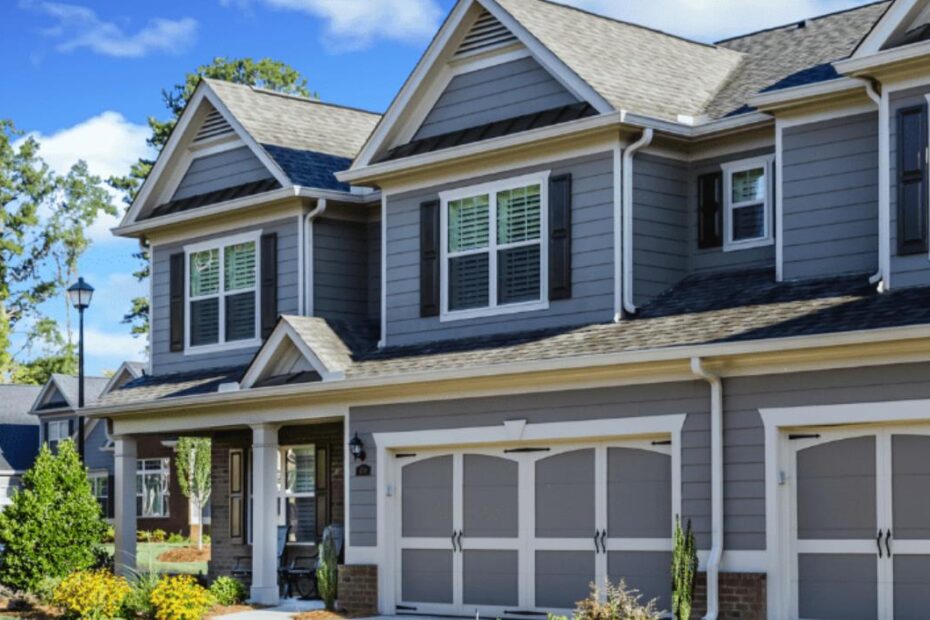Are you considering investing in real estate and wondering, “Are Townhomes A Good Investment?” You’re not alone. Townhomes make up 5.9% of the U.S. housing market and offer a unique set of benefits and challenges for investors. In this article, we’ll delve into the various aspects that make townhomes a potentially good or bad investment.
Key Takeaways
- Townhomes can offer easier maintenance and desirable locations.
- They may come with expensive HOA fees and limited storage space.
- Location and well-run HOAs are crucial factors to consider.
- Townhomes generally retain their value but may depreciate faster than single-family homes.
- Landlord insurance is recommended for protecting your investment.
Are Townhomes A Good Investment?
The answer is that it depends. Investing in townhomes comes with its own set of pros and cons, which we will explore in this article.
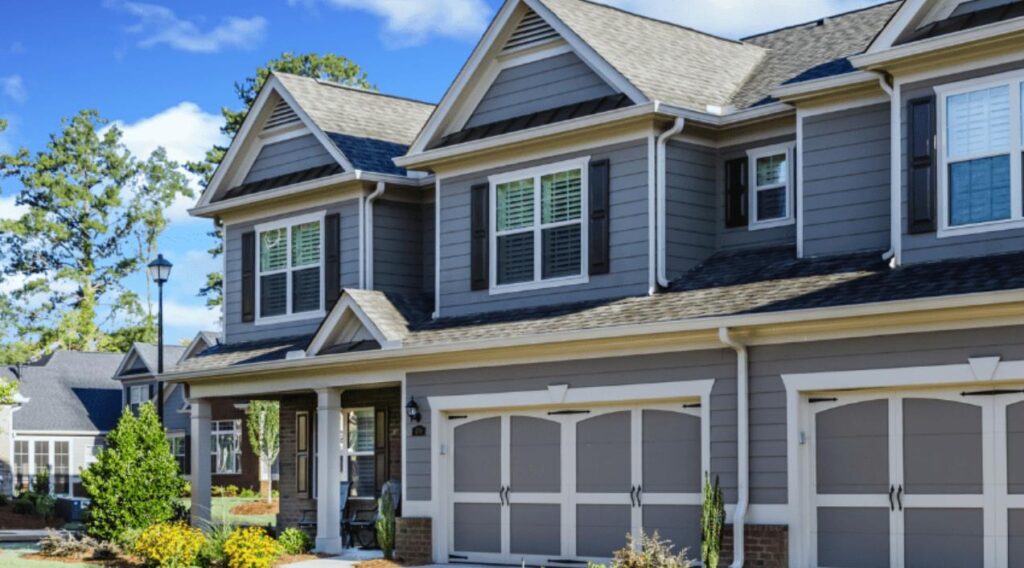
Benefits of Investing in Townhomes
Easier Maintenance
One of the advantages of investing in townhomes is the easier maintenance, often managed by a Homeowners Association (HOA). However, this comes at the cost of HOA fees, which can be included in the rent to make the investment more passive.
Desirable Locations
Townhomes are often located near downtown areas, making them attractive for tenants who value easy commutes and access to amenities.
Privacy and Security
Townhomes offer private entrances and sometimes backyards, providing tenants with a sense of privacy and security.
Cons of Investing in Townhomes
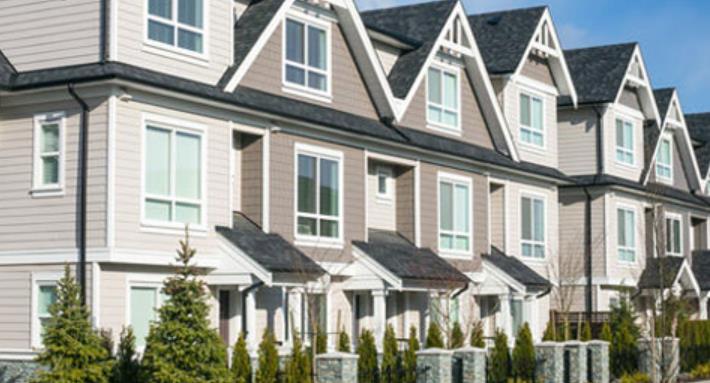
Limited Storage
Townhomes often lack ample storage space, lacking attics or basements, which could be a dealbreaker for some tenants.
Noise Concerns
Due to shared walls, noise can be an issue in townhomes, affecting the type of tenants you may attract.
Expensive HOA Fees
HOA fees can be costly and are an additional expense that you’ll need to consider when calculating your return on investment.
What To Look For in a Townhome?
When considering whether townhomes are a good investment, there are several key factors to keep in mind. These factors can significantly influence the profitability and ease of management of your investment. Here’s what to look for:
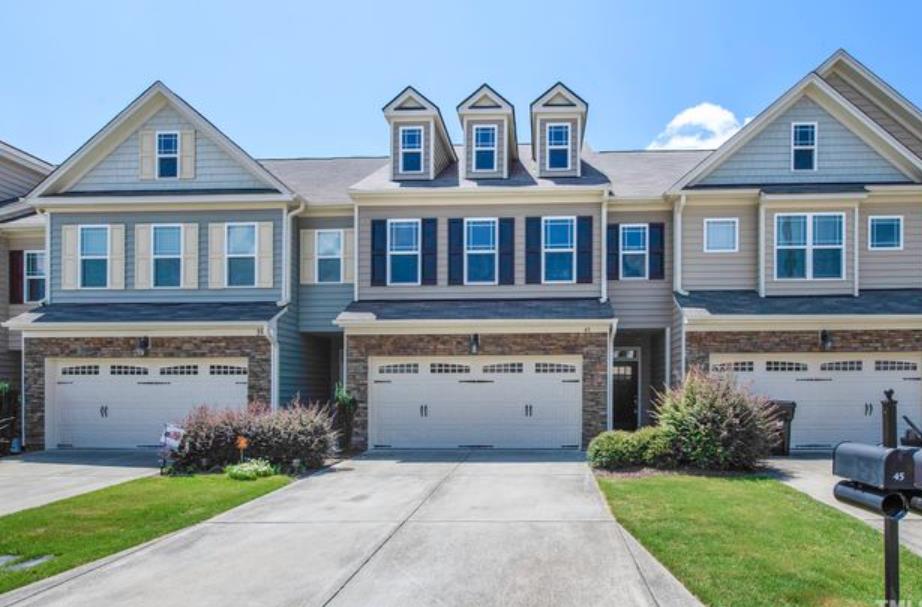
Location
The location of the townhome is arguably the most crucial factor in determining its investment potential. A townhome in a desirable area can command higher rents and is more likely to appreciate in value. Look for properties in neighborhoods with low crime rates, good schools, and convenient access to amenities like shopping centers and public transportation.
Homeowners Association (HOA)
The quality and reputation of the Homeowners Association can make or break your investment. A well-run HOA will take care of maintenance and amenities, making your property more attractive to potential tenants. However, high HOA fees can eat into your profits, so it’s essential to find a balance.
Property Condition
Inspect the townhome thoroughly before making a purchase. Look for any signs of wear and tear or needed repairs, as these can affect your return on investment. A property in excellent condition will save you money on upfront repairs and is more likely to attract quality tenants.
Rental Rates in the Area
Understanding the rental rates in the area can help you estimate your potential income. This will also help you determine whether the property is priced appropriately and what kind of return on investment you can expect.
Resale Value
Consider the potential resale value of the townhome. Factors like location, property condition, and market trends can influence how much you’ll be able to sell the property for in the future.
Do Townhomes Retain Value?
The question of whether townhomes retain their value is a critical consideration for any potential investor. The answer is generally yes but with some caveats. Here’s a deeper look into this aspect:
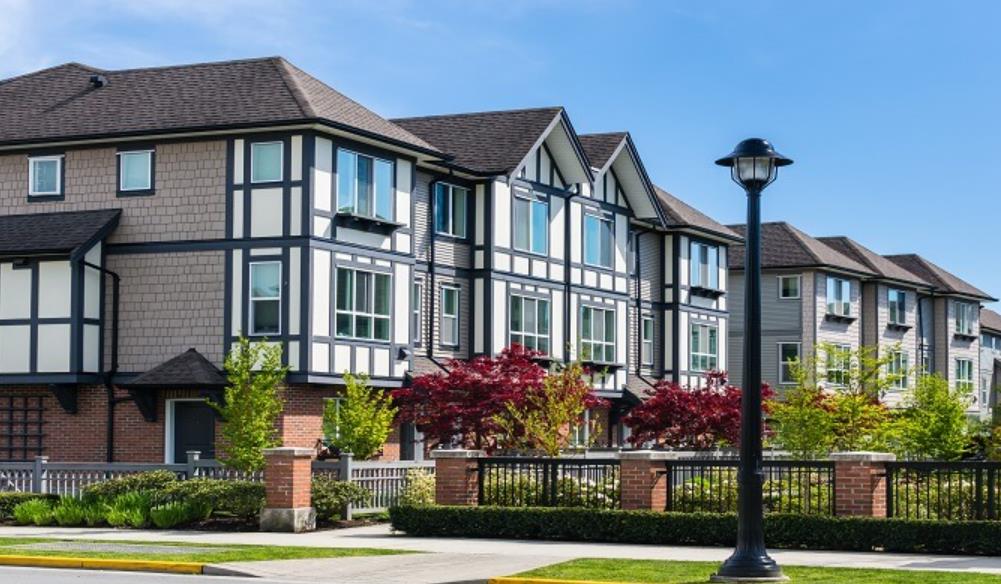
Market Trends
Townhomes, like any other type of real estate, are subject to market trends. In a booming real estate market, townhomes are likely to appreciate in value. However, in a downturn, they may lose value but often not as dramatically as other types of properties.
Location
The location of the townhome plays a significant role in its ability to retain value. Properties in desirable neighborhoods or close to amenities are more likely to hold or increase in value over time.
Quality of Construction
The build quality of the townhome can also impact its long-term value. High-quality construction materials and finishes can make the property more appealing to potential buyers, helping it maintain its value.
Homeowners Association (HOA)
A well-managed HOA can contribute to the property retaining its value. They often handle maintenance and improvements, ensuring that the community remains attractive to potential buyers.
Economic Factors
External economic factors, such as interest rates and the overall health of the economy, can also impact a townhome’s value. While these are beyond an individual investor’s control, they are important to consider.
Comparison to Single-Family Homes
It’s worth noting that while townhomes generally retain their value, they may depreciate faster than single-family homes. However, they also tend to be more affordable upfront and can offer a quicker path to positive cash flow.
Should You Get Landlord Insurance?
The question of whether to get landlord insurance when investing in a townhome is an important one. The short answer is yes, and here’s why:
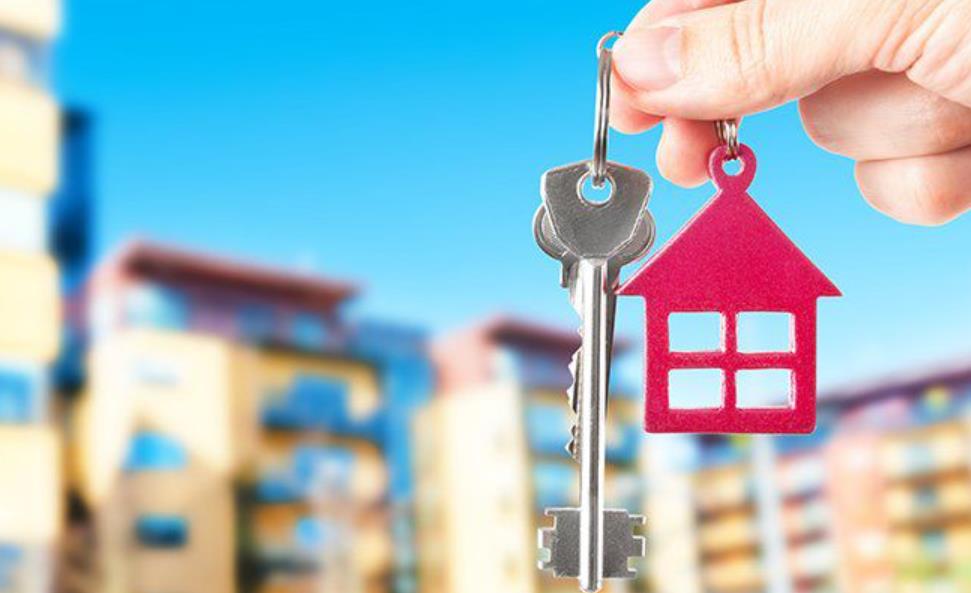
Liability Coverage
Landlord insurance provides liability coverage, protecting you from financial loss in case a tenant or visitor gets injured on your property. This is crucial for safeguarding your investment and personal assets.
Property Damage
Standard homeowner’s insurance may not cover damage caused by tenants or loss of rental income due to property damage. Landlord insurance typically includes these coverages, offering a more comprehensive protection plan for your investment.
Loss of Rental Income
If your property becomes uninhabitable due to reasons like fire or severe water damage, landlord insurance can cover the loss of rental income for a specified period, helping you maintain cash flow while repairs are made.
Customizable Policies
Landlord insurance is often customizable, allowing you to add specific coverages that suit your needs, such as vandalism coverage or coverage for appliances and furnishings provided to the tenant.
Legal and Medical Expenses
Some landlord insurance policies also cover legal fees and medical expenses in case you have to go to court over a tenant issue or if someone gets injured on the property.
Cost vs. Benefit
While landlord insurance is an additional expense, the cost is often outweighed by the benefits and protections it offers. It’s a small price to pay for peace of mind and financial security.
Financing Options for Townhome Investments
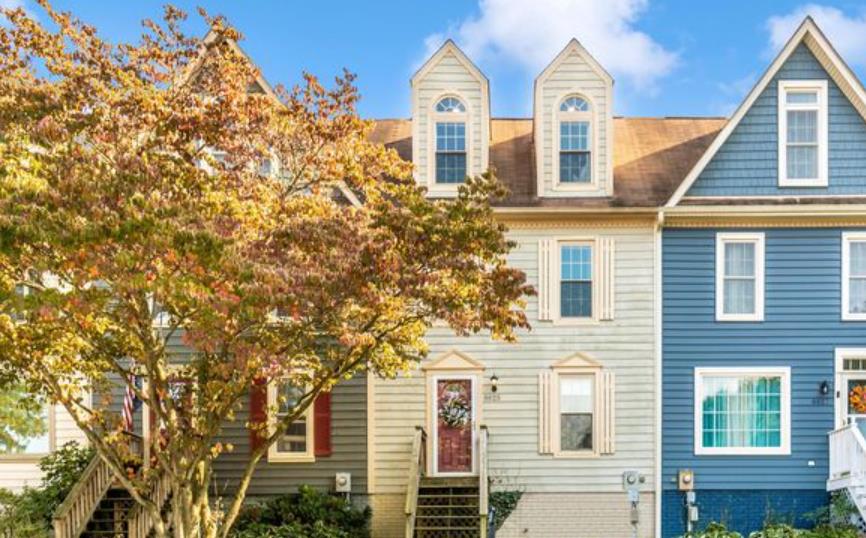
Mortgage Rates
When considering a townhome as an investment, it’s crucial to explore the mortgage rates available. Generally, mortgage rates for townhomes are similar to those for single-family homes, but it’s essential to shop around for the best deal.
Down Payment
The down payment required for a townhome can vary based on the lender and your credit score. However, it’s often lower than that for single-family homes, making it more accessible for first-time investors.
Tax Implications
Property Taxes
Property taxes for townhomes are generally lower than those for single-family homes, which can make them a more attractive investment option from a tax perspective.
Depreciation Benefits
Investors can benefit from depreciation deductions on their tax returns, which can offset some of the costs associated with owning and maintaining a townhome.
Rental Income Potential
Rental Rates
Rental rates for townhomes can be competitive, especially in desirable locations. This can provide a steady income stream for investors.
Vacancy Rates
Understanding the vacancy rates in the area where you’re considering investing is crucial. Lower vacancy rates often indicate a high demand for rental properties, including townhomes.
Long-Term vs. Short-Term Rentals
Long-Term Rentals
Long-term rentals can provide a steady income but may require a longer time to realize significant returns on your investment.
Short-Term Rentals
Short-term rentals can offer a higher income but come with increased management needs and potential legal restrictions.
Exit Strategies
Resale Value
While townhomes generally retain their value, understanding the resale market is essential for planning an effective exit strategy.
Lease-to-Own Options
Offering a lease-to-own option can be an attractive exit strategy, providing a win-win solution for both the investor and the tenant.
Key Differences Between Single-Family Homes And Townhouses
When it comes to investing in real estate, understanding the key differences between single-family homes and townhouses can help you make a more informed decision. Here are some of the primary distinctions:
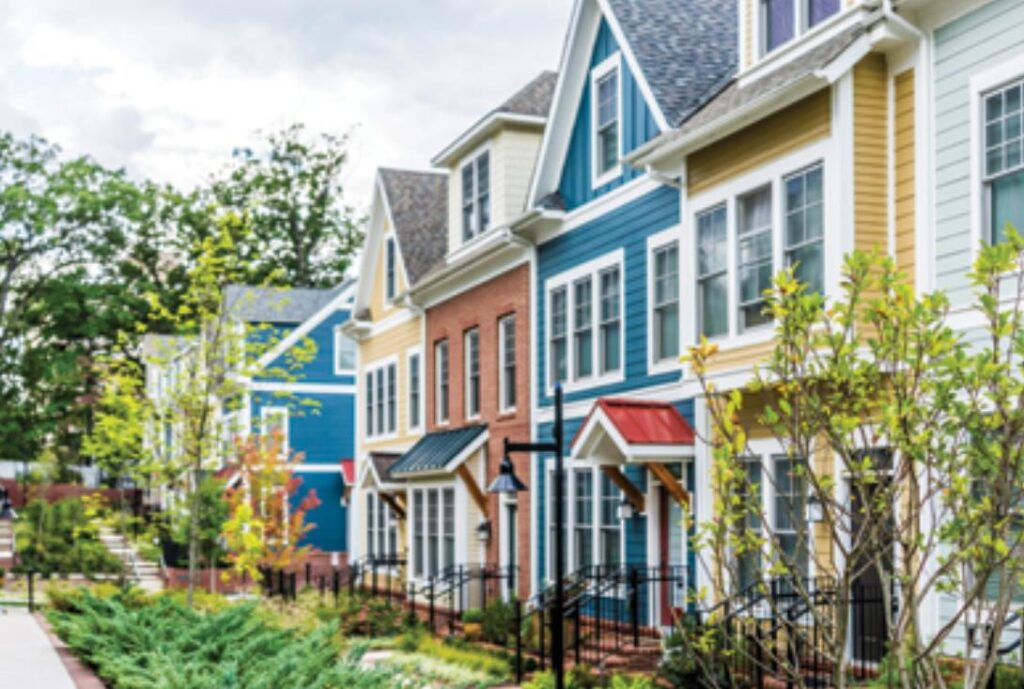
Ownership
In a single-family home, you own both the structure and the land it sits on. In a townhouse, you typically own the interior of the unit and share ownership of common areas with other residents through a Homeowners Association (HOA).
Maintenance
Single-family homes require the owner to handle all maintenance, from lawn care to roof repairs. In contrast, townhouses often have an HOA that takes care of common areas and sometimes even exterior maintenance, reducing the burden on individual owners.
Space
Single-family homes usually offer more space, both indoors and outdoors. Townhouses are generally more compact, often lacking features like a large yard or multiple levels.
Cost
Townhouses are often more affordable than single-family homes, both in terms of purchase price and ongoing expenses like utilities, making them an attractive option for first-time investors.
Flexibility
Single-family homes offer more flexibility in terms of modifications and renovations. With townhouses, any changes usually need to be approved by the HOA.
Rental Income
Both property types can generate rental income, but single-family homes often attract long-term tenants, while townhouses may be more suitable for short-term rentals, depending on location and HOA rules.
By understanding these key differences, you can better assess which type of property aligns with your investment goals and risk tolerance.
Do Townhomes Appreciate?
The question of whether townhomes appreciate in value is often top of mind for investors. The general consensus is that yes, townhomes do appreciate, but there are several factors that can influence this.
Market Conditions
The state of the real estate market plays a significant role in any property’s appreciation. In a seller’s market, townhomes are likely to appreciate more quickly.
Location
As with any real estate investment, location is crucial. A townhome in a desirable area is more likely to be appreciated than one in a less sought-after location.
Quality of the HOA
A well-run HOA can contribute to a townhome’s appreciation by maintaining common areas and amenities, thereby making the community more attractive to potential buyers.
Upgrades and Renovations
Any upgrades or renovations you make to the property can also contribute to its appreciation. However, it’s essential to ensure that these improvements align with what’s desirable in the local market.
Economic Factors
External economic conditions, such as interest rates and employment rates, can also impact appreciation. Generally, a strong economy will favor property appreciation, including townhomes.
Why You Should Invest In A Townhouse?
Investing in a townhouse comes with several advantages that make it an attractive option for both new and seasoned investors. Here’s why you should consider it:
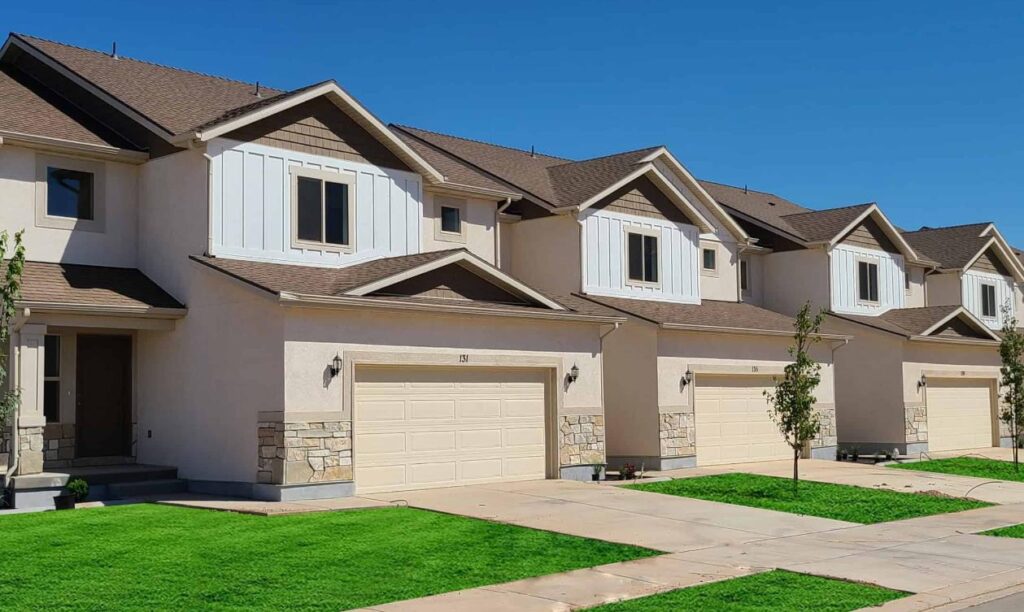
Affordability
Townhouses are generally more affordable than single-family homes, making them an excellent entry point for first-time investors.
Lower Maintenance Costs
With a Homeowners Association (HOA) often handling exterior maintenance and common areas, you can save on upkeep costs, making your investment more passive.
Strong Rental Demand
Townhouses are popular among renters for their affordability and community amenities, translating to lower vacancy rates and a more reliable income stream.
Easier to Manage
The smaller size and fewer responsibilities associated with townhouse ownership often make them easier to manage compared to single-family homes.
Diversification
Adding a townhouse to your investment portfolio can provide diversification, reducing your overall risk.
By understanding these advantages, you can see why investing in a townhouse can be a smart financial move.
Is Buying A Townhouse Right For You?
While townhouses offer several benefits, they’re not the right investment for everyone. Here’s how to determine if it’s the right fit for you:
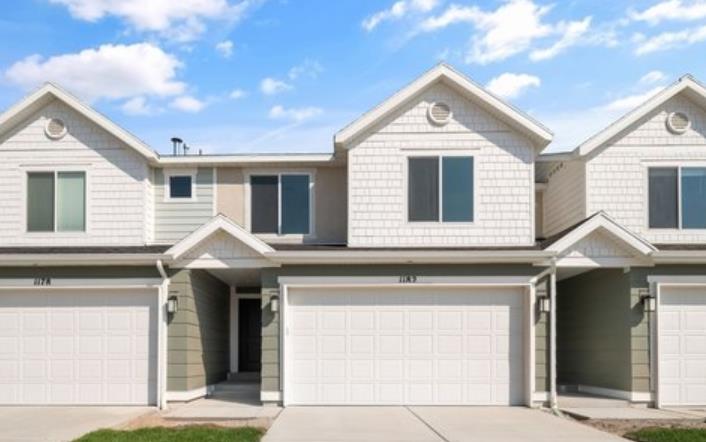
Investment Goals
Consider your long-term investment goals. If you’re looking for a more hands-off investment with lower maintenance, a townhouse might be ideal.
Risk Tolerance
Townhouses generally come with less risk due to their affordability and strong rental demand, making them suitable for those with a lower risk tolerance.
Lifestyle Preferences
If you prefer a community setting with shared amenities, a townhouse could align well with your lifestyle preferences.
Financial Situation
Review your financial situation to ensure you can afford the down payment, mortgage, and any HOA fees.
By evaluating these factors, you can decide if buying a townhouse aligns with your investment strategy and personal preferences.
Is Renting Out A Townhouse A Good Investment?
Renting out a townhouse can be a lucrative investment if done correctly. Here are some points to consider:
Rental Yields
Townhouses often offer competitive rental yields, especially in high-demand areas, providing a good return on investment.
Tenant Stability
Due to their affordability and community amenities, townhouses often attract long-term tenants, reducing turnover costs.
HOA Benefits
A well-managed HOA can enhance the appeal of your rental property, making it easier to find and retain tenants.
Tax Benefits
You can often write off expenses like mortgage interest, property taxes, and maintenance costs, improving your bottom line.
Scalability
The lower cost and easier management of townhouses make it easier to scale your investment portfolio.
Conclusion
In summary, townhomes can be a good investment depending on various factors such as location, HOA management, and your investment strategy. They offer benefits like easier maintenance and desirable locations but come with challenges like expensive HOA fees and limited storage.
Top FAQ’s
What Type of Coverage Does Landlord Insurance Give?
Landlord insurance provides coverage for property damage, liability, and loss of rental income. It’s essential for protecting your investment and can vary in cost based on the level of coverage you choose.
Are There Any Tips for New Landlords?
New landlords should focus on location, understand the HOA rules, and consider the renter-to-owner ratios in the neighborhood. Additionally, they should invest in landlord insurance and be prepared for maintenance responsibilities.
Is Landlord Insurance Right for Me?
If you’re planning to rent out your townhome, landlord insurance is highly recommended. It provides an extra layer of protection over standard homeowner’s insurance and is tailored to cover the unique risks associated with renting out a property.
Do Townhomes Retain Their Value?
Yes, townhomes generally retain their value, although they may depreciate faster than single-family homes. However, they also recover their value over time, making them a relatively stable investment.
How Do HOA Fees Affect My Investment?
HOA fees can add to your monthly expenses but often cover essential maintenance tasks. These fees can be passed on to the tenant in the rent, effectively making your investment more passive.
A multifaceted professional, Muhammad Daim seamlessly blends his expertise as an accountant at a local agency with his prowess in digital marketing. With a keen eye for financial details and a modern approach to online strategies, Daim offers invaluable financial advice rooted in years of experience. His unique combination of skills positions him at the intersection of traditional finance and the evolving digital landscape, making him a sought-after expert in both domains. Whether it’s navigating the intricacies of financial statements or crafting impactful digital marketing campaigns, Daim’s holistic approach ensures that his clients receive comprehensive solutions tailored to their needs.
